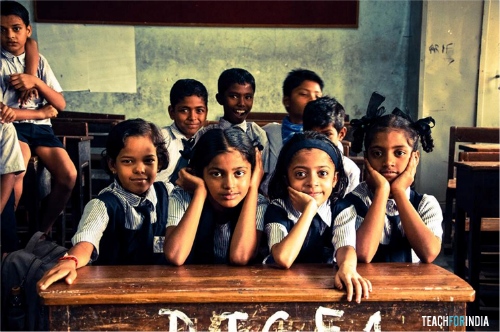
“Seva,” the Hindi word for “service,” is one of Teach for India’s (TFI) core values. “Seva, Teamwork, Integrity, Respect and Humility, Resourcefulness, Excellence, Sense of Possibility, and Reflection” are all important values to the best and the brightest graduates recruited from India by the organization to teach their country’s underprivileged children. One of the big things to understand in India, according to Kovid Gupta, is the “importance of working with the system. The government has many policies and practices in place and often learning how to use these resources is key to creating a macro-level impact.”
Gupta is an alumnus of Teach For India. He is also the co-author of the book, Redrawing India: The Teach for India Story, which he wrote with the organization’s CEO, Shaheen Mistri. Redrawing India is about how Teach for India’s founder, Shaheen Mistri, made it all happen. After visiting the slums of Mumbai, she started her own education foundation, Akanksha, which she ran for 18 years. Inspired by Teach for America founder Wendy Kopp, Mistri convinced Kopp that children in India had similar problems to children in America. You could say the rest is history. Today, Teach for India is in 7 cities – Mumbai, Pune, Delhi, Hyderabad, Chennai, Ahmedabad and Bengaluru, and has 910 Fellows and 660 Alumni working for the organization.
It’s my pleasure to invite Shaheen Mistri to The Global Search for Education today to tell us more about their good work.
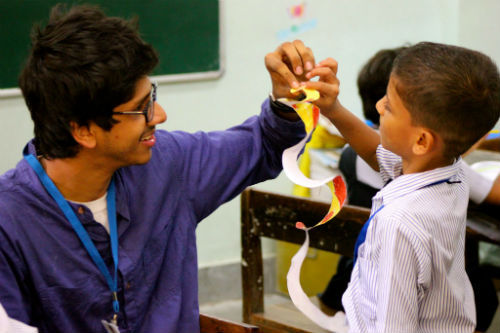
The core goal of your programs is to make sure that all children can get a good education. Currently four percent of children in India don’t ever start school. What progress are you hoping for on this front?
The government of India has implemented many initiatives to increase the enrollment of students in primary school through the Right to Education (RTE) and other acts. However, we also know that almost fifty percent of those who do enroll drop out of primary school, and a further ninety percent or so do not graduate high school either. While Teach For India does not have any specific interventions in terms of increasing enrollment, many of our Alumni are working on a number of initiatives to implement the 25% reservation clause through the RTE to increase enrollment at the primary school level and ensure that children from all strata of society have access to a quality education. Our contribution to this will mainly be through supporting our alumni as they embark on these initiatives while working on strengthening the quality of education provided through our Fellows, as well as supporting other resources such as an online teacher training platform. By doing so, we hope to increase the percentage of children staying in school until the secondary level.
The strength of your programs comes from the committed teaching Fellows. What are the challenges of recruiting college graduates to teach in low-income schools? The Fellows are stationed at these schools for two years; what sorts of jobs do they go on to do from there?
Our recruitment team works across the country and reaches out to young, passionate and motivated individuals from a variety of backgrounds and demographics. All we ask of our Fellows is that they be passionate and committed to fighting for educational equity in India. Consequently, they understand the challenges of working in low income schools in under-resourced conditions and in tough communities where our children come from. The skills learned during the Fellowship enable our Fellows to become strong leaders with transferable leadership skills in any sector they choose to enter. We provide our Fellows with access to opportunities in the teacher training, teaching, educational technology, curriculum and assessment fields, and they also enter the corporate responsibility sector, rural education, and government. A number of our Fellows choose to attend graduate schools for further studies in education, policy and management. Approximately 65% of our Fellows remain in the education sector, and many of our alumni are still strongly connected to Teach For India. They support our program by mentoring existing Fellows, providing access to opportunities in their field of work and spreading awareness about Teach For India’s mission. Many of our alumni also come back to work with Teach For India as staff members.
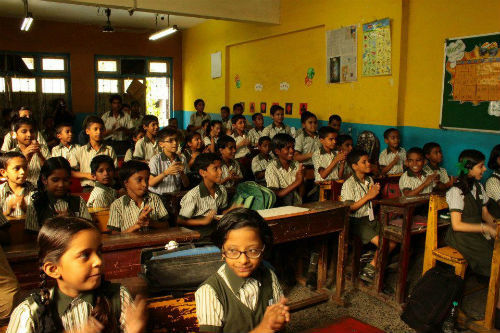
What is Teach for India’s relationship to Teach for America? What have you learned from them? Do you see the potential for more programs like this to be started in other parts of the world?
Teach For India owes much to Teach For America’s learning experience from its first few years and to Wendy Kopp for her incredible support when I was first thinking about the idea of starting this initiative in India. One of the most important things I learned from Wendy was the importance of believing in the power of leadership and what a big role it could play in changing a country’s future. Teach For America’s pioneer model paved the way for many other countries across the world to setup similar models because it was a way to harness the power of youth in a country and make an impact on the education system. Wendy Kopp and Brett Wigdortz from Teach First started Teach For All, a global network to support other countries that wanted to start similar organizations in their countries. The network provides early stage setup support and resources and helps share best practices between all partners. Currently there are almost 35 other countries in this network and Teach For India is also a part of the same.
What lessons about addressing education inequality in India do you believe may be transferable to other nations dealing with this issue?
Addressing educational inequity is a systemic challenge, one that must be addressed at multiple levels both within and outside the education system. In order to truly effect change in our classrooms, we need to work several steps before even entering our schools. Teacher training institutes should impact training of our nation’s teachers in a manner that encourages them to support the holistic development of the child and to continuously refine their own skills to create the best possible learning environments for our children. At the local government level, policies must be championed to increase the number of instructional hours in our schools as well as make the process of admission easier in order to enroll and keep a higher number of students in class. School leadership has been identified as another critical element of student success, and subsequently enough resources and training should be provided to our school principals and administrators to allow them to create a strong ecosystem in our schools and support teachers and parents as well. Above all, a greater national focus on the criticality of educational equity is needed in order to mobilize the masses and invite everyone to be a part of the solution. Only when every person on the street realizes the role she can play in this movement, can we begin to change the conversations around education, both in India and on the international stage.
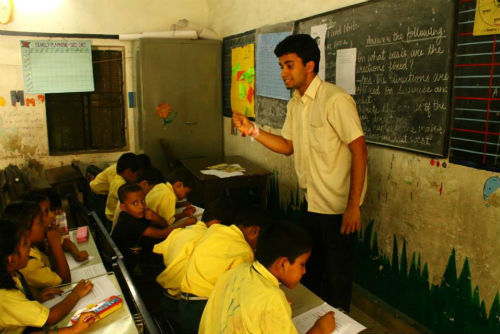
What mistakes have you made and what have you learned that others who are starting similar initiatives might look out for?
Over these past five years, we have had the chance to work with some of the best minds in the country and the world in setting up our program. Much of our learning came from previous partners in the Teach For All network who were established before we began, especially in areas of culture, staff development and impact measures. One of the biggest things we have learned has been to always focus on what’s best for our children. By keeping the focus on them, we’ve been able to think through how to get the most impact out of our work as well as motivate our Fellows and staff in the face of daily struggles and obstacles.
Finally Shaheen, your goals for 2015?
We will be expanding to our seventh site of operations, Bengaluru, in 2015. We are excited to launch there given the large number of Fellows we receive every year from that city as well as the thriving ecosystem for education and social change we have seen there. Additionally, this year we will be focusing on spreading the idea of an integrated student vision across the country through our schools on a national stage. We will advocate for a seamless integration of academics, values and mindsets, and access to different opportunities for our children in order to ensure an excellent education. We are also working on an exciting project in collaboration with expert teachers and trainers from Riverside School in Ahmedabad to create a world-class blended learning program for teacher training that can be implemented across high and low income schools as well as serve as an important part of the current teacher training curriculum run by the Government of India.
For more information on Redrawing India: The Teach for India Story
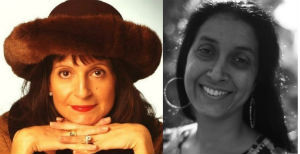

Join me and globally renowned thought leaders including Sir Michael Barber (UK), Dr. Michael Block (U.S.), Dr. Leon Botstein (U.S.), Professor Clay Christensen (U.S.), Dr. Linda Darling-Hammond (U.S.), Dr. MadhavChavan (India), Professor Michael Fullan (Canada), Professor Howard Gardner (U.S.), Professor Andy Hargreaves (U.S.), Professor Yvonne Hellman (The Netherlands), Professor Kristin Helstad (Norway), Jean Hendrickson (U.S.), Professor Rose Hipkins (New Zealand), Professor Cornelia Hoogland (Canada), Honourable Jeff Johnson (Canada), Mme. Chantal Kaufmann (Belgium), Dr. EijaKauppinen (Finland), State Secretary TapioKosunen (Finland), Professor Dominique Lafontaine (Belgium), Professor Hugh Lauder (UK), Professor Ben Levin (Canada), Lord Ken Macdonald (UK), Professor Barry McGaw (Australia), Shiv Nadar (India), Professor R. Natarajan (India), Dr. Pak Tee Ng (Singapore), Dr. Denise Pope (US), Sridhar Rajagopalan (India), Dr. Diane Ravitch (U.S.), Richard Wilson Riley (U.S.), Sir Ken Robinson (UK), Professor PasiSahlberg (Finland), Professor Manabu Sato (Japan), Andreas Schleicher (PISA, OECD), Dr. Anthony Seldon (UK), Dr. David Shaffer (U.S.), Dr. Kirsten Sivesind (Norway), Chancellor Stephen Spahn (U.S.), Yves Theze (LyceeFrancais U.S.), Professor Charles Ungerleider (Canada), Professor Tony Wagner (U.S.), Sir David Watson (UK), Professor Dylan Wiliam (UK), Dr. Mark Wormald (UK), Professor Theo Wubbels (The Netherlands), Professor Michael Young (UK), and Professor Minxuan Zhang (China) as they explore the big picture education questions that all nations face today.
The Global Search for Education Community Page
C. M. Rubin is the author of two widely read online series for which she received a 2011 Upton Sinclair award, “The Global Search for Education” and “How Will We Read?” She is also the author of three bestselling books, including The Real Alice in Wonderland, is the publisher of CMRubinWorld, and is a Disruptor Foundation Fellow.
Follow C. M. Rubin on Twitter: www.twitter.com/@cmrubinworld



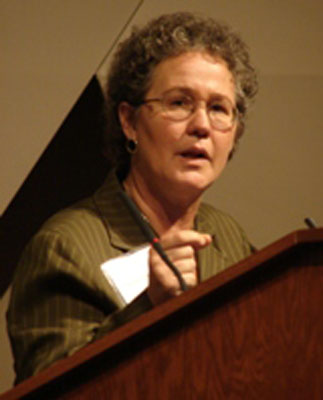
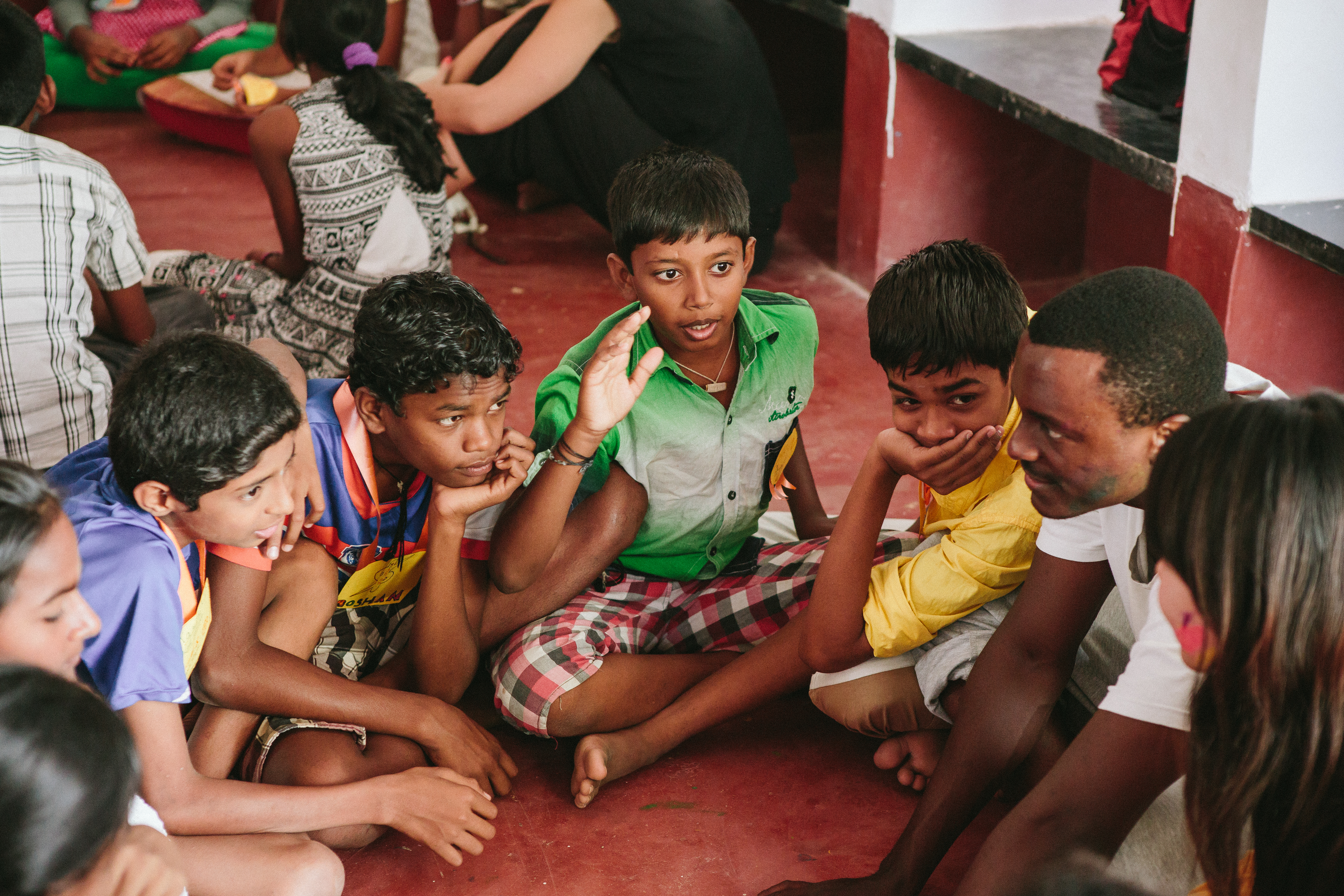
Recent Comments